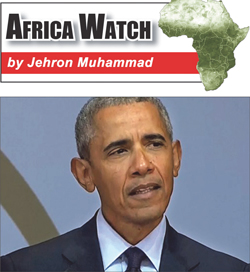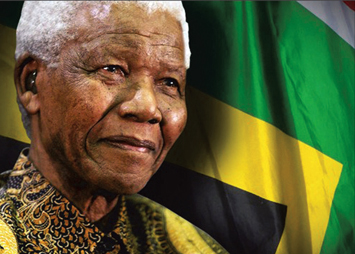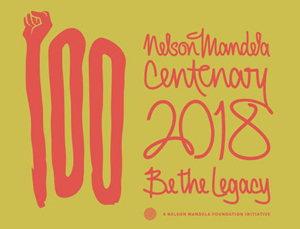
America’s first Black president, Barack Obama, may have been the honorary speaker at the 100th anniversary of the birth of the late Nelson Mandela, South Africa’s first post-apartheid president, and is the creator of the 200 member Young African Leader’s Initiative, but his record with Africa as U.S. president left a lot to be desired.
During his remarks, delivered July 17 at the Wanderers Stadium in Johannesburg, South Africa, live streamed and with 15,000 cheering him on, the former “leader of the free world” warned of growing global inequality.
America’s 44th president said, “(There) has been an explosion in economic inequality. It’s meant that a few dozen individuals control the same amount of wealth as the poorest half of humanity. That’s not an exaggeration, that’s a statistic,” he said. “Think about that. In many middle-income and developing countries, new wealth has just tracked the old bad deal that people got because it reinforced or even compounded existing patterns of inequality, the only difference is it created even greater opportunities for corruption on an epic scale.”

Obama, in his more-than-onehour speech, often went off script, talking about the importance of preserving the legacy of Mandela. He said Mandela’s accomplishments “should make us hopeful.” “We cannot deny the very real strides that our world has made since that moment when Madiba (Mandela’s tribal name) took those steps out of confinement, we also have to recognize all the ways that the international order has fallen short of its promise,” said Obama. “In fact, it is in part because of the failures of governments and powerful elites to squarely address the shortcomings and contradictions of this international order that we now see much of the world threatening to return to an older, a more dangerous, a more brutal way of doing business.”
This could have been Obama reflecting on his administration as opposed to observations about current trends.
The Obama administration, with the prodding of Secretary of State Hillary Clinton and the backing of France president Nicolas Sarkozy, invaded, overthrew and facilitated the murder of Libyan leader Muammar Gadhafi.

Responding to the 2011 Libya invasion and growing presence of Africom (the United States African Command) on the African continent, Nation of Islam Minister Louis Farrakhan said in part, “I’m hurting for Africa.” “Because now the United States has inserted Africom into Africa, soldiers are there, supposedly trying to track down Mr. (Joseph) Kony. But in reality it has nothing to do with the Lord’s Resistance Army (LRA’s less than 300 fractured troops were on the run). It has everything to do with the mineral strength of Central Africa. America will never be a superpower in the 21st century if she doesn’t have access to those strategic metals and minerals.”
Not only was the overthrow and murder of Gadhafiused by the Obama administration to pave the way for the establishment of continent- wide military operations, it was also the pretext for revamping of the centerpiece of U.S. trade policy for Africa through former President Clinton’s African Growth & Opportunity Act (AGOA).
Representing Obama, U.S. Ambassador to the African Union Michael Battle revealed how U.S. superpower status was jeopardized. In a statement he stressed the “blunt urgency” of the administration’s agenda. “If we don’t invest on the African continent now, we will find that China and India have absorbed its resources without us, and we will wake up and wonder what happened to our golden opportunity of investment.”
Commenting on Obama’s visit, activist and scholar Cornel West said he believed that Obama had the right to speak on the 100th anniversary of Mandela’s birth.
“But,” Dr. West said, “people have to be honest about his policies, his crimes, and his vision of the world as U.S. president and head of the American empire.”
“I respect his right to speak, but he is held to account, people need to know the truth about what he did in the same way people need Former U.S. President Barack Obama delivers the annual Nelson Mandela lecture in Johannesburg, South Africa, July 17. Photo: MGN Online to know the truth about the arc of Mandela’s own life. So, I really do stand very much in solidarity with those who are protesting.”
“Now, the last thing you want to do is act as if Barack Obama is some kind of grand progressive figure. No, he was a neoliberal counterfeit,” Dr. West told Al-Jazeera.
Obama’s speech was part of his first trip to Africa since leaving the White House, a trip that included a visit to Kenya where his father was born and a conference in South Africa with his Young African Leaders Initiative.
During his South African speech he cautioned against the rise of the “strongman.”
“I am not being an alarmist. I’m simply stating the facts,” he told the large crowd seated in front of him. “Look around, (and in a clear reference to President Donald Trump said) strongman politics are ascendant suddenly, whereby elections and some pretense of democracy are maintained– the form of it–but those in power seek to undermine every institution or norm that gives democracy meaning.”
Follow @JehronMuhammad on Twitter.












